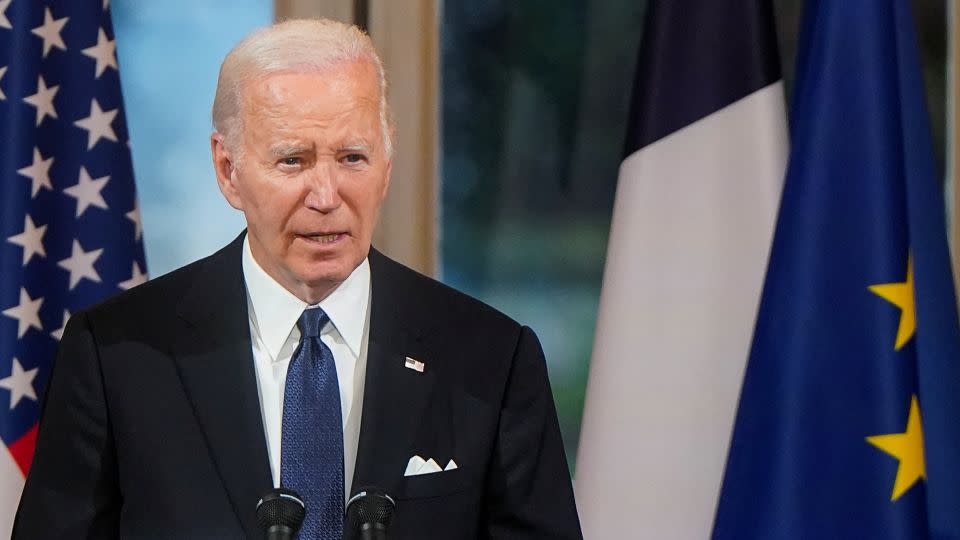Biden administration announces new sanctions against Russia ahead of G7 summit

President Joe Biden will arrive at the G7 summit in Italy with over 300 new sanctions aimed at further isolating and financially weakening Russia.
The measures are “guided by G7 commitments to intensify the pressure on Russia,” according to the US Department of Treasury, and they mark the latest move to limit the Kremlin’s revenues and hamper Moscow’s ability to source materials for its war in Ukraine.
The sanctions take aim at foreign financial institutions supporting Russia’s war, restrict Russia’s access to certain US software and information technology services, and target over 300 individuals and entities “whose products and services enable Russia to sustain its war effort and evade sanction,” the department said.
The US and its western allies have levied a series of sanctions against Russia in recent years, but the country has adapted to them. Russian President Vladimir Putin has taken to gloating about Russia’s resistance to international sanctions, which take time to have an effect.
“Today’s actions strike at their remaining avenues for international materials and equipment, including their reliance on critical supplies from third countries. We are increasing the risk for financial institutions dealing with Russia’s war economy and eliminating paths for evasion, and diminishing Russia’s ability to benefit from access to foreign technology, equipment, software, and IT services,” Treasury Secretary Janet Yellen said in a statement.
Among the actions is a step that will authorize Treasury to impose sanctions on foreign financial institutions aiding Russia’s military-industrial base. The move threatens sanctions on any financial institution that does business with any previously-sanctioned individual or entity, including Sberbank and VTB bank.
“Russia today has become a war economy, and while Russia is working to build the weapons, from tanks to missiles to aircrafts that they need, fundamentally, they can’t build them alone – they need parts and goods from other countries and from companies and individuals that are not in Russia,” a senior Treasury official said Wednesday. “And today’s actions of expanding our secondary sanctions regime will make it harder and more difficult for Russia to get access to those goods that they need from third countries, and from individuals and companies in those countries.”
Wednesday’s tranche will also expand existing sanctions on the sale of semiconductors to Russia, broadening economic penalties to target countries using US technologies to produce the much-needed computer chips. In particular, the measure will take aim at China, which has managed to fill a significant portion of Russia’s industrial base, circumventing sanctions already in place.
“What we are doing today is going after those goods that are that are not just US-origin, but US-branded, which means all goods that are produced using US technology, tools, software, intellectual property – and going after entities in these third countries, preventing them from getting access to any of these goods … to sell any of these goods into Russia,” a senior Commerce Department official told reporters Wednesday, estimating that the sanctions deployed Wednesday could impact nearly $100 million in high-priority items, including semiconductors.
Another move will target Russia’s attempts to evade sanctions through networks that use “convoluted schemes to move money and other valuable goods and assets,” Treasury said. It will designate more than 90 individuals and entities doing so in Russia, Belarus, the British Virgin Islands, Bulgaria, Kazakhstan, the Kyrgyz Republic, China, Serbia, South Africa, Turkey, and the United Arab Emirates.
For more CNN news and newsletters create an account at CNN.com

 Yahoo News
Yahoo News 
